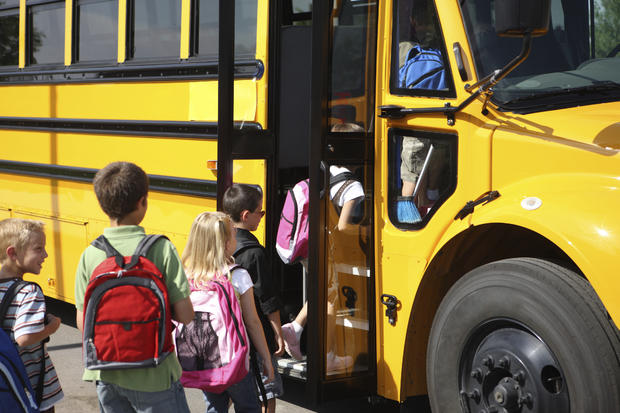Kids' headaches spike in back-to-school season, researchers say
If heading back to school gives your child a headache, new research suggests he's not alone. A new study finds headaches in children do increase in the fall, when academic stress, changing bedtime routines and other triggers may kick in.
Researchers at Nationwide Children's Hospital in Columbus, Ohio, analyzed about 1,300 visits to the hospital's emergency department from 2010 to 2014. They found the number of visits for headaches among children ages 5 to 18 stayed about the same for most of the year, but jumped more than 31 percent in the fall.
"Stress is really a significant player with children's and teen's headaches -- parents report that all the time, we see that all the time," the lead researcher, Dr. Ann Pakalnis, a neurologist and director of the Comprehensive Headache Clinic at Nationwide Children's, said in a video posted by the hospital. "And school is the biggest stressor."
Other factors that experts say may contribute to headaches include an increase in after-school activities, skipping meals and not drinking enough fluids. Lack of exercise and too much screen time could also be a factor.
About 20 percent of school-age children and teens, or 10.3 million in the U.S., are prone to headaches, according to the National Headache Foundation. The organization says about 15 percent of these kids experience tension-type headaches, while 5 percent cope with migraines.
Migraines are typically accompanied by nausea, vomiting and sensitivity to light and noise. Tension headaches are often the result of stress, anxiety or fatigue.
Experts say in many cases, headaches can be prevented.
"Your brain is like your cellphone," Dr. Howard Jacobs, a headache specialist at Nationwide Children's Hospital, said in a statement. "If you don't plug your cellphone in, it doesn't have energy, it doesn't work well. If you don't plug your brain in by providing energy, it doesn't work well and that causes headaches."
To reduce the risk of headaches, he recommends:
- Eat three balanced meals a day
- Drink enough liquids (but avoid caffeine and sports drinks)
- Get adequate sleep at night without napping during the day
- Take steps to remove stresses in a child's day
The National Sleep Foundation recommends 9 to 11 hours of sleep a night for children ages 6-13, and 8 to 10 hours a night for older teens.
And don't overlook warning signs that could indicate a serious health problem. Jacobs says a a sudden, severe headache, or a change in the headache sensation, should be evaluated by a doctor. A good rule of thumb: if headaches are interfering with a child's normal routine, consult a physician.
